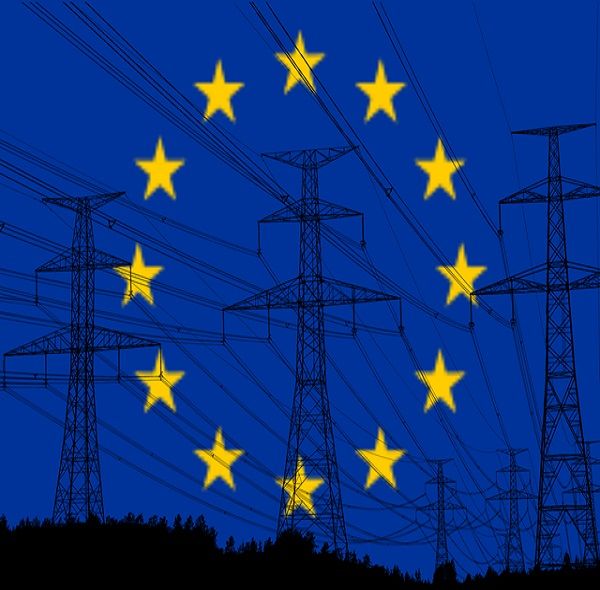The European Union has pledged to source 42.5 per cent of its energy from renewable sources like wind and solar by the end of the decade.
With this agreement, the EU aims to “fast-track the deployment of renewable energies” as part of the EU’s plan “to become independent from Russian fossil fuels, after Russia’s invasion of Ukraine”, according to a statement from the Council of the EU.
Following overnight negotiations, the negotiators of the European Parliament and Council agreed that the share of renewable energy in the EU’s overall energy consumption will need to be 42.5 per cent by 2030 with an additional “aspirational” 2.5 per cent top-up.
The target set in the Renewable Energy Directive (RED) is below the 45 per cent requested by MEPs but above member states’ preferred 40 per cent. It also constitutes a significant increase from the previous 2030 target, set at 32 per cent.
European Commission chief Ursula von der Leyen welcomed the political agreement, writing on Twitter that it “will help us progress towards climate neutrality, strengthen our energy security and boost our competitiveness – all at once”.
To reach this goal, the bloc would have to double its current production of renewable energy, which in 2021 represented 21.8 per cent of energy consumed in the EU, according to Eurostat.
However, the amount of energy consumed from renewable technologies in the EU varied from country to country. Currently, Sweden is the nation that relies most heavily on green energy sources, with a 63 per cent share. Meanwhile, in Luxembourg, Malta, the Netherlands and Ireland, renewable sources make up less than 13 per cent of total energy use.
Therefore, meeting the new goal would require large investments in wind and solar farms, a scale-up in the production of renewable gases, and a reinforcement of Europe’s power grids to integrate more clean energy.
In addition, the agreement includes hydrogen, nuclear power and biomass on the list of renewable energy sources.
Martin Pigeon, Fern’s forests and climate campaigner, argued that “because it will keep rewarding energy companies burning millions of trees, our mainland carbon sink, the RED will continue to worsen the climate and biodiversity crisis, harm people’s health, and actively undermine the EU’s climate ambitions in addition to destroying value at taxpayer’s expense”.
French MEP Pascal Canfin (Renew), who chairs Parliament’s Environment Committee, celebrated the fact that the RED recognises “the specific role of nuclear power, which is neither green nor fossil”.
However, the climate change coalition CAN Europe branded the targets as “not in line with what scientific evidence is showing us”.
“If we are serious about reaching climate neutrality, member states will now need to work together and surpass a 50 per cent EU renewables,” said Chiara Martinelli, director at CAN Europe.
The European Commission has also said additional investments of €113bn (£99bn) in renewable energy and hydrogen infrastructure will be needed by 2030, if EU countries are to end their reliance on Russian fossil fuels.
The RED announcement follows the UK’s publication of its new green energy strategy earlier this week. The plan to “power up Britain” stressed the government’s already-announced £20bn investment in carbon-capture technology as well as the launch of a £160m fund to support offshore port infrastructure projects for wind energy.
Before Russia invaded Ukraine, the nation supplied 27 per cent of the EU’s imported oil and 40 per cent of its gas, with the bloc paying around €400bn (£341bn) a year in return. However, in May 2022 the EU announced its intention to effectively cut 90 per cent of oil imports from Russia.
The new renewables targets are awaiting approval by the European Parliament and EU countries to become legally binding.
Source: E&T










